Autistic Pride Day 2016: Why we are proud to have autism
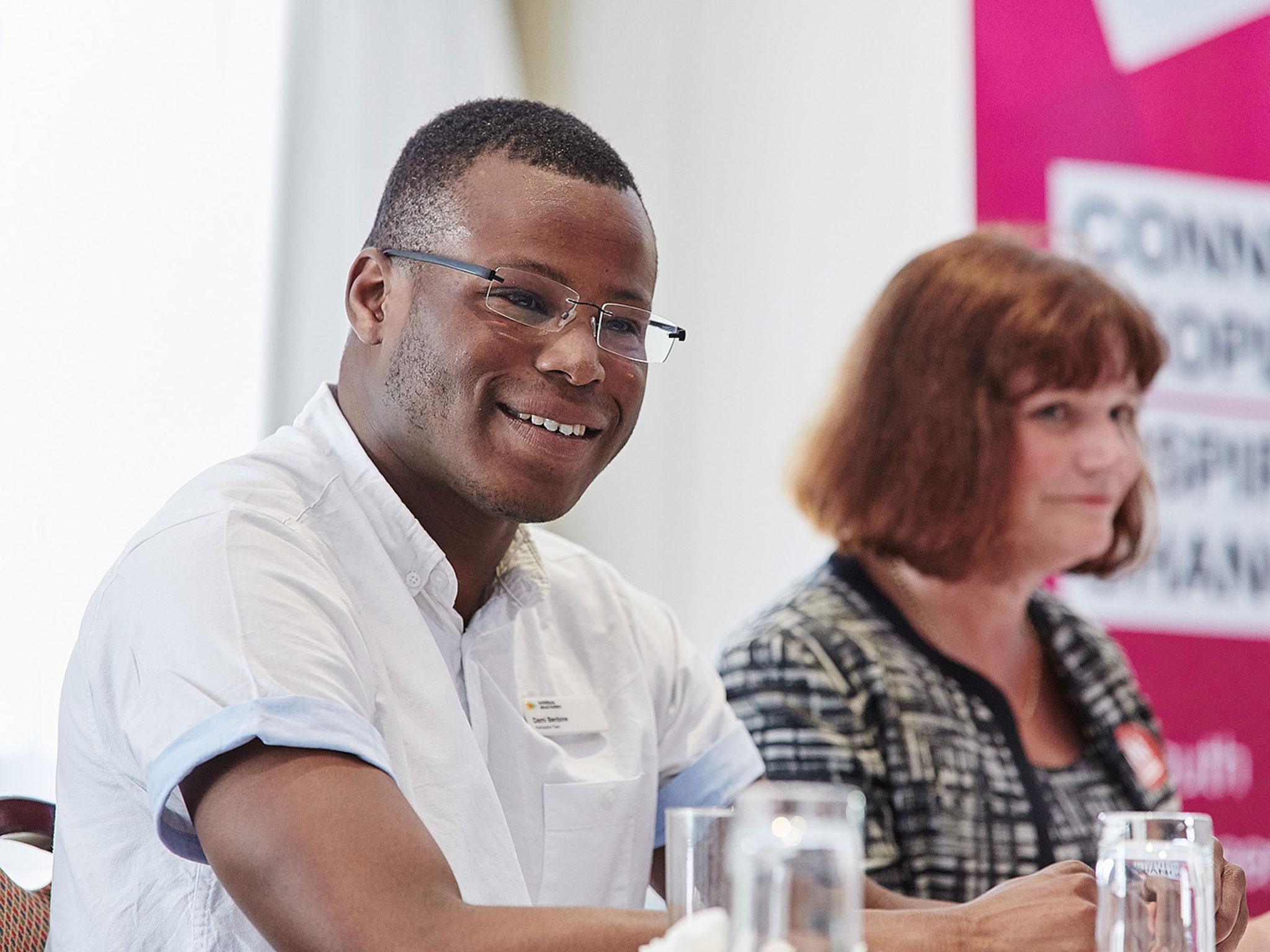
Your support helps us to tell the story
From reproductive rights to climate change to Big Tech, The Independent is on the ground when the story is developing. Whether it's investigating the financials of Elon Musk's pro-Trump PAC or producing our latest documentary, 'The A Word', which shines a light on the American women fighting for reproductive rights, we know how important it is to parse out the facts from the messaging.
At such a critical moment in US history, we need reporters on the ground. Your donation allows us to keep sending journalists to speak to both sides of the story.
The Independent is trusted by Americans across the entire political spectrum. And unlike many other quality news outlets, we choose not to lock Americans out of our reporting and analysis with paywalls. We believe quality journalism should be available to everyone, paid for by those who can afford it.
Your support makes all the difference.Hollywood films such as Rain Man and What’s Eating Gilbert Grape have introduced neurotypical audiences to the complex condition that is autism (with the help on non-autistic actors). But on Autistic Pride Day, those living with it speak for themselves, and celebrate the unique way that autism affects each of them.
Inspired by LGBT Pride events, the first Autistic Pride Day was celebrated in 2005 by the online community Aspies for Freedom. It is now marked worldwide. This year in London organisation Autistic UK will help to host an event featuring music, poetry and comedy performances from adults on the autistic spectrum.
“The time has come for Autistic Pride,” says Kat Humble, chair of Autistic UK. “Being part of a neurological minority group does not mean that you have a medical condition. Homosexuality used to be regarded as a 'perversion' and was later defined as a psychiatric illness. That has changed and attitudes towards people with minority neurotypes need to change too.”
To mark the occasion, we asked men, women and children with the condition to share their experiences – both positive and negative – and declare why they are proud to be autistic.
Jules Roberston, 25, is an actor who currently plays Jason Haynes in BBC's 'Holby City'. He lives in north London, and is a youth patron for the charity Ambitious About Autism.
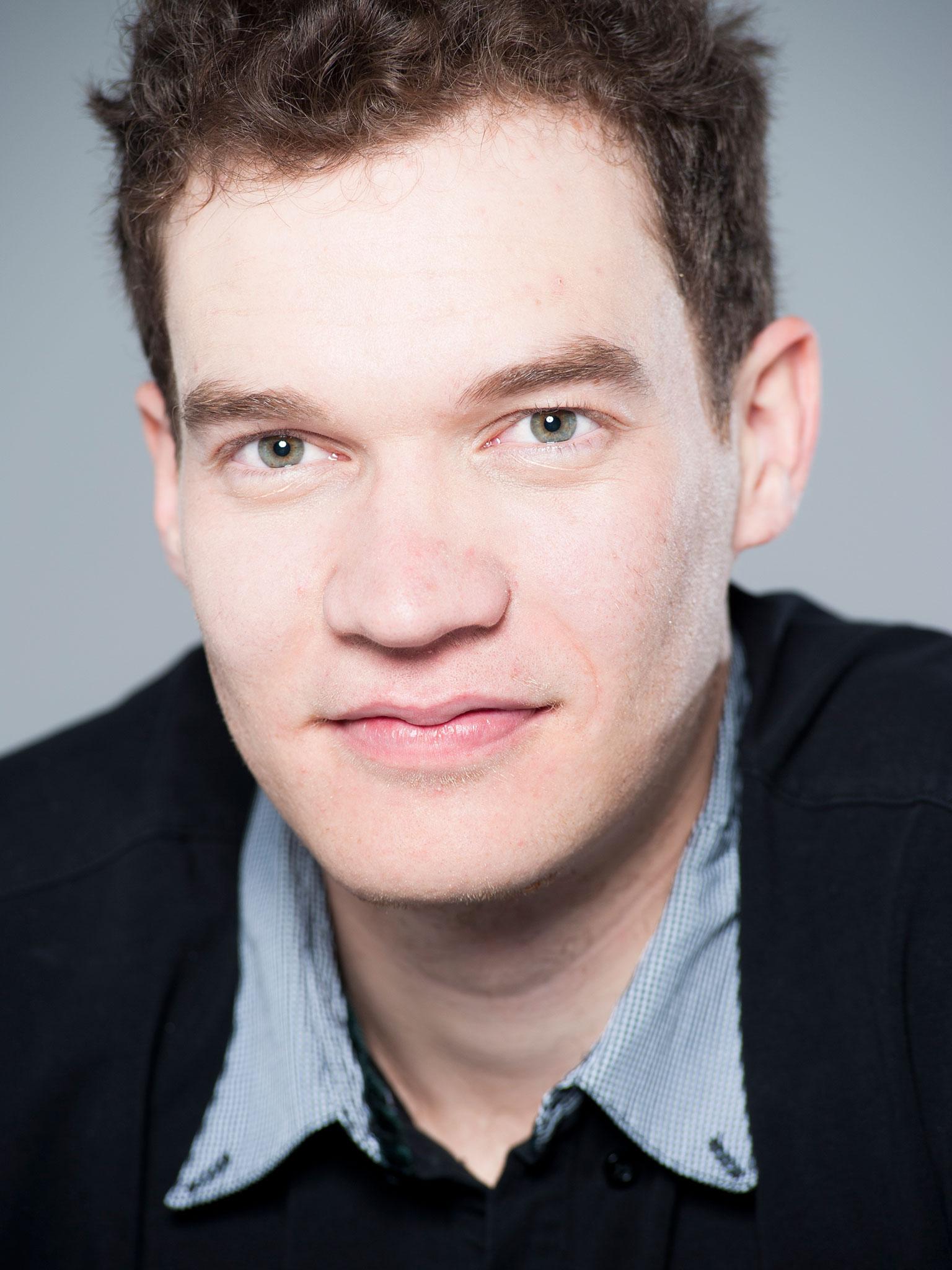
My Mum told me I had autism when I was a kid, but that the label didn't define me. She told me all the exceptional things I can do, like remembering every match point from any tennis game ever played and every movie ever made by my favourite actors.
The hardest thing about autism is the loneliness. You can feel as though you've been exiled to social Siberia. I just wish people were more accepting of quirks and idiosyncrasies and being different.
I've often felt discriminated against. But I'm an actor working on Holby City now, which is the best thing that has ever happened to me. Playing an autistic person in a big show like this is helping to take away the stigma of having autism.
I think directors should stop casting neurotypical people to play autistic characters. In years to come people will realise that's as crass as getting white actors to black up. I also think Hamlet was on the autistic spectrum – he was so anxious, had OCD and couldn't read social situations, like how he ignored Ophelia's pain. I'd like to play the first autistic Hamlet. If only someone would give me a chance.
Ian Adam Bellamy, 28, is from Essex and works as a Project Officer at Ambitious About Autism.
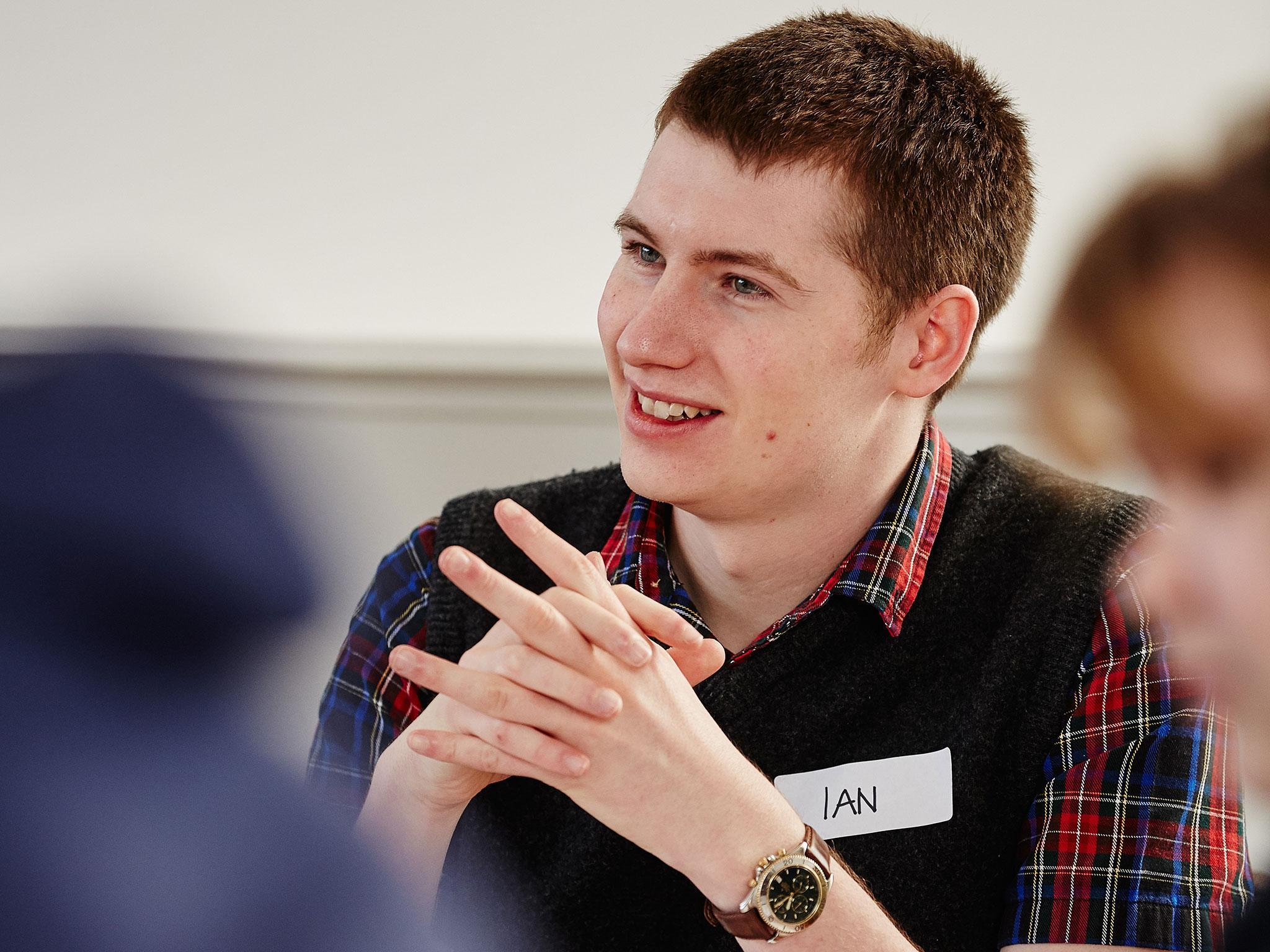
I was diagnosed with autism when I was ten. It didn’t really mean anything to me, and I’m sure it meant more to my parents, who finally had an explanation for why their child behaved in such a challenging way.
When I was at secondary school I found the environment of an all-boys grammar school to be pretty unwelcoming. Independent thinking and difference were anathema. I hope for the sake of other young people that awareness of autism has improved since that time.
I see being on the spectrum as a broader part of who I am. I wouldn’t have had the same experiences in life, the same achievements to take pride in, the same relationships I value, if I wasn’t the same person. I’m comfortable with who I am.
Life rarely works out as you expect it to. I wasn’t able to imagine I would have close relationships, a degree or a career. These are now realties.
People with autism want the same basic things in life as people without autism: to be happy, healthy and fulfilled.
Alex Lowery, 22, is Youth Patron at Ambitious About Autism.
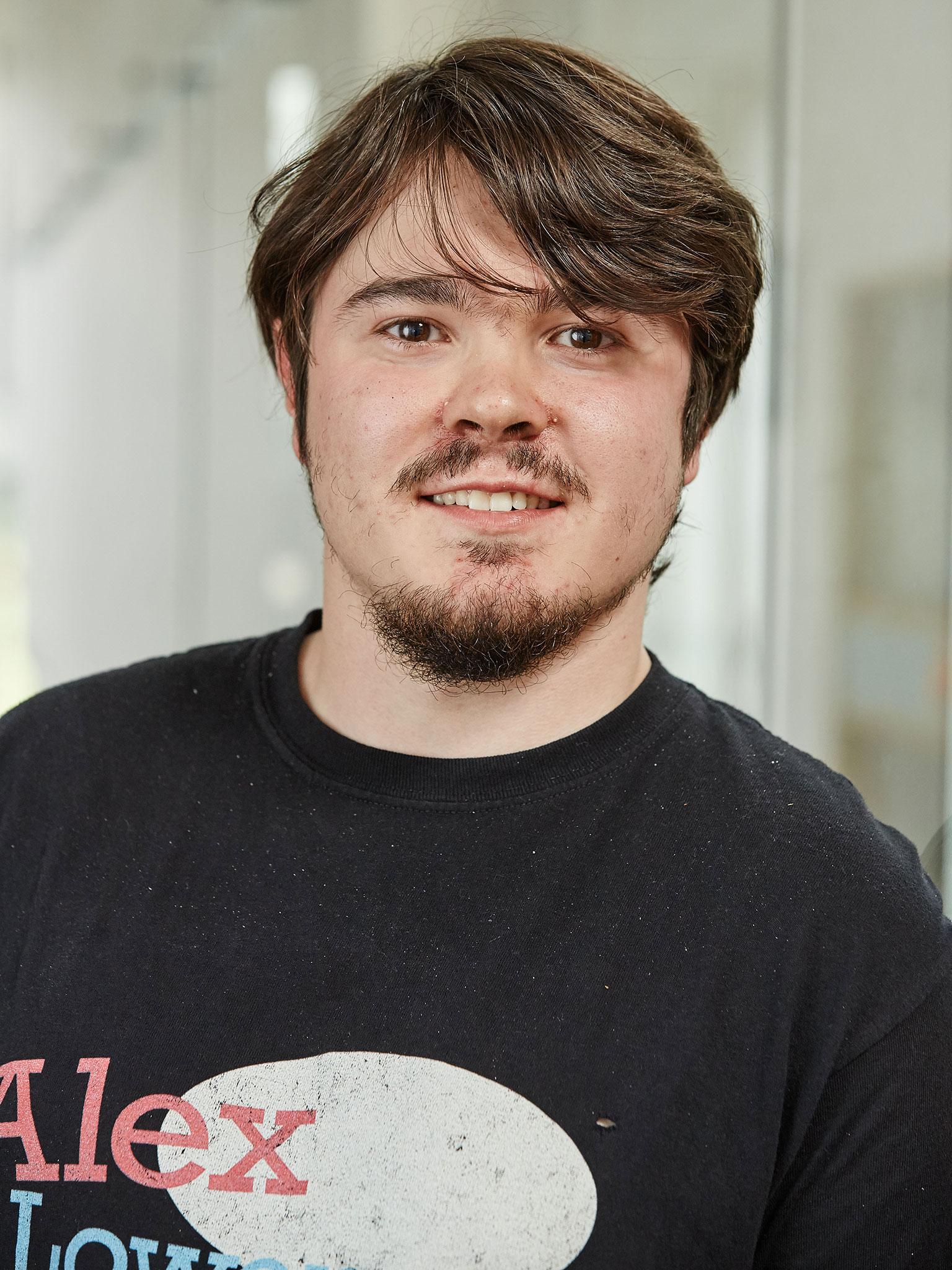
I was diagnosed with autism at the age of four. My parents told me when I was 11 years old.
I certainly think that there are both positive and negative aspects to having autism. I have a good attention to detail, I look at things in a unique and literal way, and I'm also rather honest. I tend to only focus on one thing at a time, whereas most people focus on the bigger picture. As a result, I can miss things that most people would consider obvious, but I can also notice something else that no one else would.
When I was in Boy Scouts, I was aware of just how different I was from the other kids. The other kids did daft things and got into trouble and I was much more serious. I tried to act like these other boys my age, but I failed miserably. I just came across as weird.
Autism Pride Day is important because it can help people not to view autism in an all-together negative way. Autism simply is a part of what makes a person who they are.
Robyn Steward is an autism and asperger’s trainer and the author of 'The Independent Woman’s Handbook to Super Safe Living on the Autistic Spectrum'. She lives in south west London.
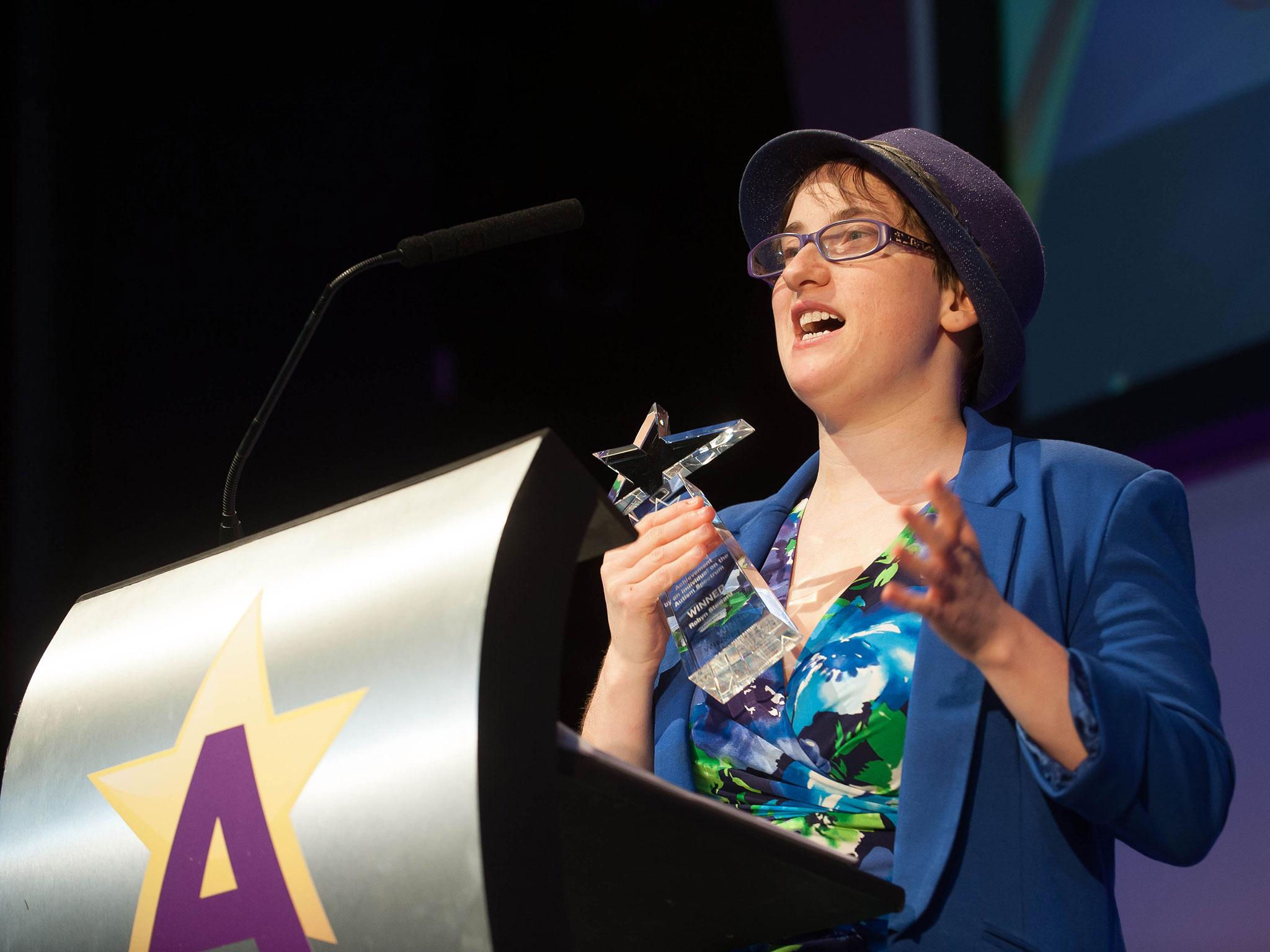
I was diagnosed with autism aged 12. I felt relief, as I’d been wondering why I was so different. It is difficult for me to make sense of social situations and I have to be conscience of my sensory needs as I am hypersensitive to sound. It feels awful like being swallowed by that particular sensory experience with no way out, so I have to be careful to carry headphones when travelling.
Positively, I’m very driven and have a long attention span.
When I became an autism trainer I was 17 or 18-years-old. I'd been bullied by my classmates, and I was blamed for responding in the "wrong way". I didn't understand what I did wrong because I hadn't fully appreciated how different non-autistic people and autistic people think. I realised if I taught the non-autistic teachers about autism they could teach me about non-autistic people, and how I could respond in a way that would make bullies leave me alone.
I am proud to be an artist, musician, author and educator who happens to be autistic. To celebrate, I am performing at the Autistic Pride Day event in Hyde Park.
Dami Benbow, 25, lives in Lewisham, London and is a participation co-ordinator at Ambitious About Autism.

I was diagnosed with autism when I was 14 years old. I am proud of what I have managed to achieve over the past 10 years, holding elected office for a year (as deputy young mayor of Lewisham at 15), graduating university, and working with young people to help them prepare for a future that is increasingly hostile to them.
My autism has given me my public speaking ability, an extremely good long term memory, and varied interests. Because I have never been able to understand people I find the human condition a very complex and intriguing puzzle which requires solving. As a result I can try and put myself in a mindset of just about any person to try and understand why people do the things that they do.
In my youth I feel I was discriminated against a lot because of my autism. There were certain “friends” who knew I was desperate for friendship and could therefore get me to do anything they wanted. However as I got older and went to university I found that people accepted me for me.
Autistic Pride Day is just the start of a very long battle to be recognised as individuals with our talents and personalities that go beyond a label.
Alex Marshall is 10 years old, and lives in Halifax with his parents, brother, two cats and two guinea pigs.
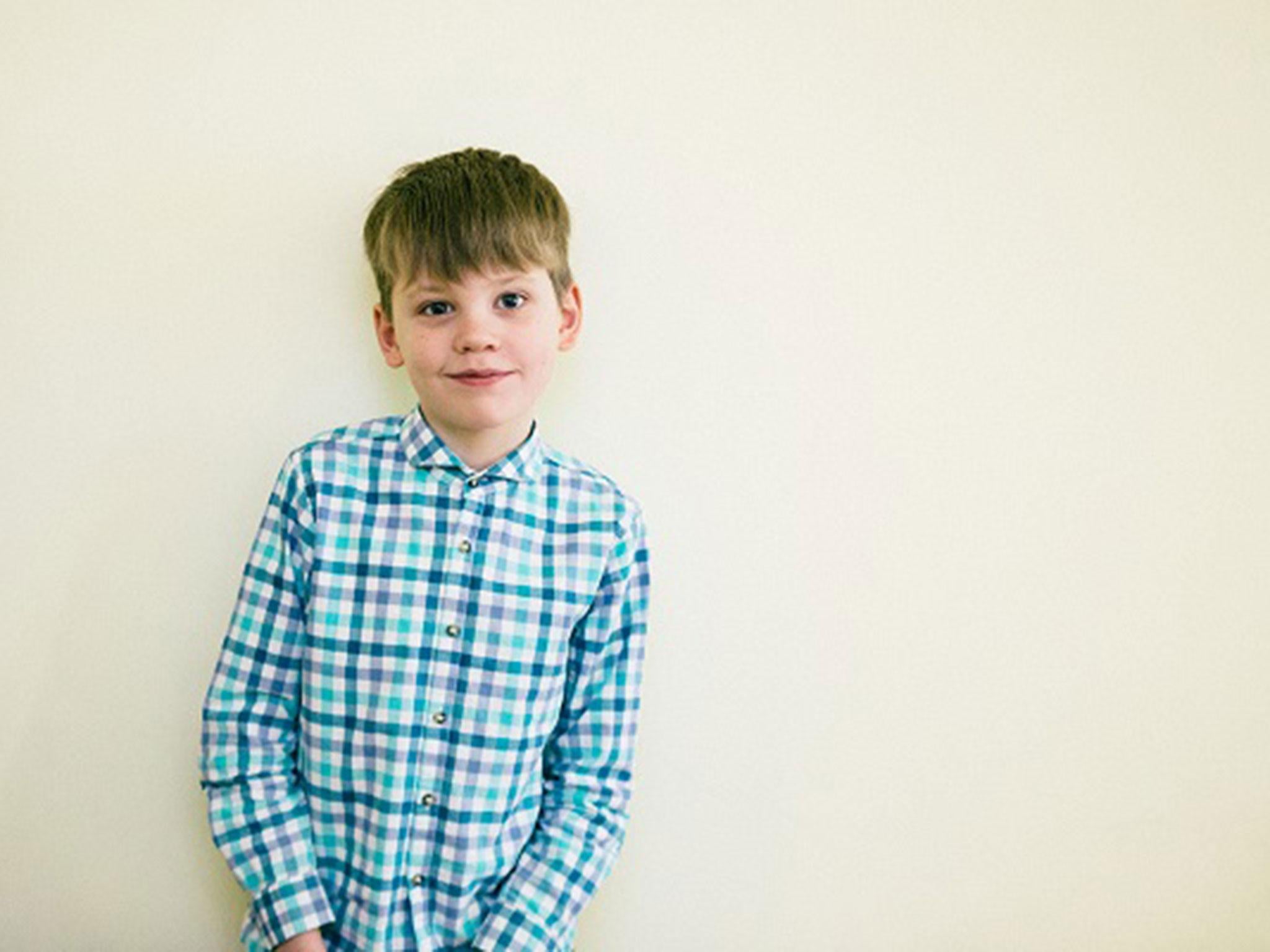
I was diagnosed with autism when I was eight. I’m proud of having autism because it makes me unique, and I think it's good to be different.
Being autistic means I have very specific interests, like Marvel and my knowledge is a lot higher than the average person. It would be impossible to be an expert and not even Stan Lee knows everything.
I don't think people are nasty to me because I’m autistic. I've heard my mum and dad say that people sometimes give me looks when I'm having a meltdown but I am not aware of this.
If someone with autism is struggling I would also say that bad days happen and you can hope it will be better tomorrow. At home I storm up to my bedroom, get really cross and read some of my comics and get ready to come down again.
I think people with autism just want to be treated with respect and understanding.
Adam Bradford, 22, is a social entrepreneur and a 2016 Queen’s Young Leader.
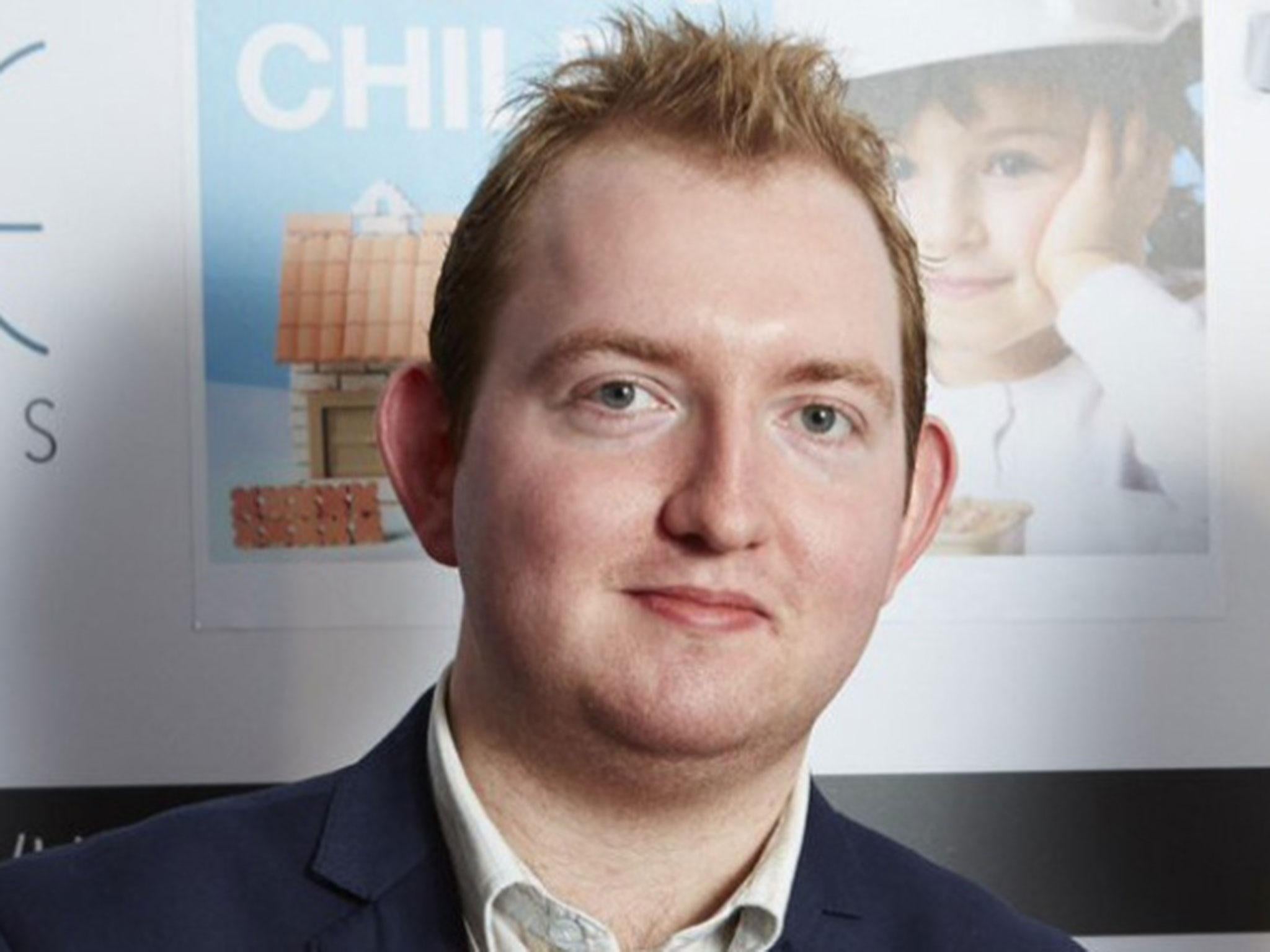
I was diagnosed with autism at the age of 11. I know the process was draining for my parents who were unsure how to deal with the diagnosis when it came. They felt like I could be hindered in life by having this special educational needs ‘label'.
I am very proud of being autistic – it’s a part of who I am and I achieve my goals through the privilege of being autistic – we are very special people and have lots to offer. I wouldn’t change myself.
I absolutely love the concept of Autistic Pride Day. What is life if we can’t all join together and say ‘hey, you might be different to me and you might process your thoughts in a different way but that’s autism, and I love you for it'.
I found school life difficult and sadly had to move out of my secondary school to complete my GCSEs in a different, more supportive school, as I felt discriminated against by both teachers and students. There is no place for this in the 21st century.
People who don’t have autism themselves should understand that it is a flipping brilliant, special quality and requires some understanding and compassion.
George Harvey, 22, from Kent, gives autism awareness talks in schools.

I was diagnosed with autism when I was four. I wasn’t introduced to the word 'autism' until I was in secondary school. It didn’t bother me at first, but then I gradually started to feel lonely and isolated.
Autism does cause me setbacks in my day-to-day life, but I prefer to focus more on the positive aspects of my condition. Having an autistic mind means I’m always coming up with unique ideas for games and stories. Also, experiencing autism first-hand means I understand the effects better than anyone. This is what inspired me to become an author and advocate for personal disabilities.
I think Autism Pride Day is important, because it helps people to recognise there’s a plus side to having the condition. Many people are successful because of their autism – Albert Einstein, Satoshi Tajiri and Dan Aykroyd are all examples of this. Autism doesn’t mean you won’t succeed in life; it means you have the potential to do something no one else can – you just have to discover it.
Dr Valerie Paradiz, 53, lives in Boulder, Colorado and is a strategy consultant and a National Board Member of Autism Speaks.
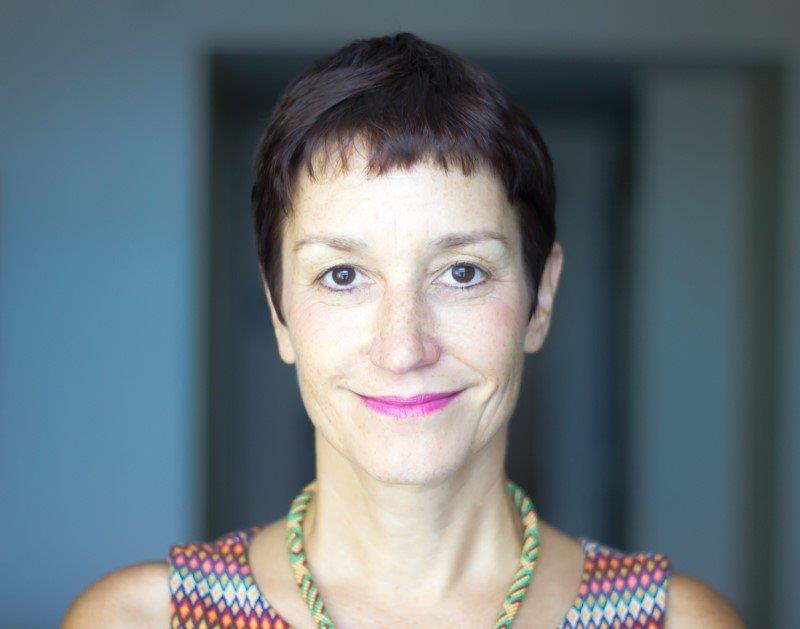
I was 40 when I was diagnosed with autism. I felt a sense of relief because for years, even when I was a young child, I had been treated for depression and, though that was somewhat helpful, it wasn’t targeted enough for me.
Autism affects me in number of ways, like with sensory integration problems. Every so often I have flare-ups, and I feel like I’m on a boat.
Over the years, I’ve worked in the arena of scholarship, first as a German professor and an author, so my focus and attention has gone into writing. From 2000 to 2010, those years were hard. The school that I started received a grant from an organisation, and when a donor heard I was on the spectrum, she retracted it and said that people like me distorted the view of autism. Her child had a more severe autism. Discrimination issues were more blatant back then; nowadays there’s more awareness.
I think Autism Pride Day is important because it really looks to celebrate the strengths and focus on those rather than deficits. Where would I be without my friends with Asperger’s, who encouraged me to get a diagnosis and treatment? I’m proud of what we do for each other.
Holly is 10 and lives in Leeds. She is a wannabe YouTuber.
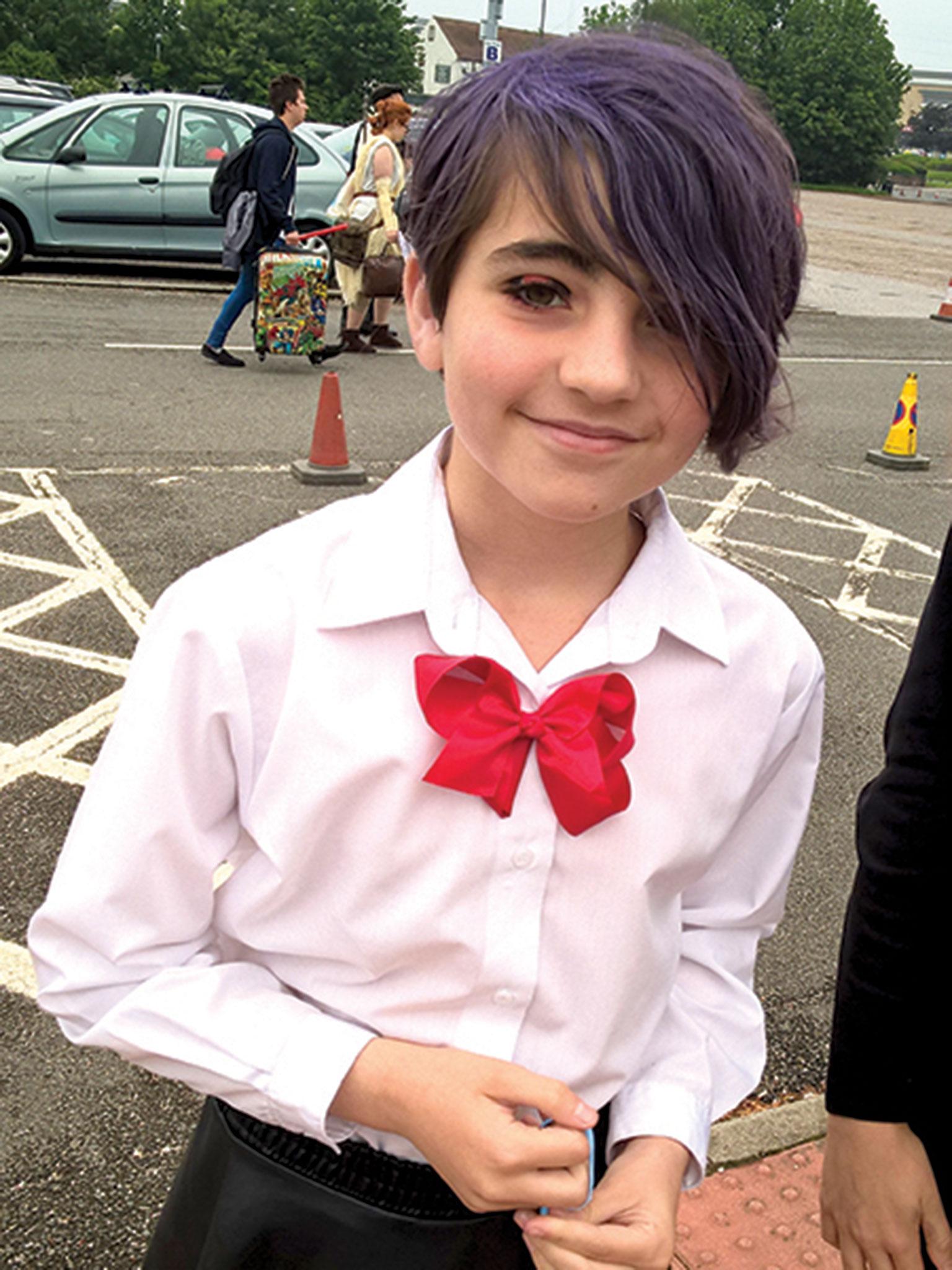
I was diagnosed with autism In May 2015. I'm proud to be autistic because it makes me an individual and without autism I wouldn’t be who I am today.
Christmas and family occasions are difficult because there are lots of people who expect me to socialise and answer questions. It makes me in a bad mood and it makes me tired. Then I want to go on the internet and be by myself.
Because I am so passionate to get rid of school uniforms (I hate wearing mine, I like wearing black clothes and leggings), autism gave me the courage to write to my MP asking to get rid of them. I started a petition and in three days I got 53 signatures. School gave me an award for my persuasive writing skills.
Autism Pride Day is important because it shows people what autism really is and to be proud of being different.
YouTube, heavy rock music, drawing chibi and manga characters, and reading helps me to deal with my autism. Plus lots and lots of Vimto bon-bons.
Stephen Shore, 54, lives in Boston, Massachussets and is a professor of special education at Adelphi University, New York, and a national board member of Autism Speaks.
After 18 months of typical development, I lost functional communication, had meltdowns, sensory issues, and withdrew from my environment. Because so little was known about autism in those days it took my parents a full year to find a place for diagnosis.
I am very proud of what I have been able to do with my autistic characteristics and how they have enhanced my life in terms of being able to engage in my deep interests in various areas such as being a bicycle mechanic, musician, music professor, now a professor of special education, and being a husband.
Emotionally, the difficulties in social interaction can make me sad, as I wish I had as easy a time at it as most people.
Autism is a different, and not necessarily a disordered way of being. That the potential of those of us on the autism spectrum is unlimited – just like with everyone else. It's a matter of figuring out how to access that potential.
We are entering a new era where society is beginning to recognise people on the autism spectrum for the strengths we have. That said, there are significant challenges to having autism. Let us use Autistic Pride Day as part of an effort to transition from considering autism through a lens of deficit, disorder, and disability to a model of ability!
Join our commenting forum
Join thought-provoking conversations, follow other Independent readers and see their replies
Comments